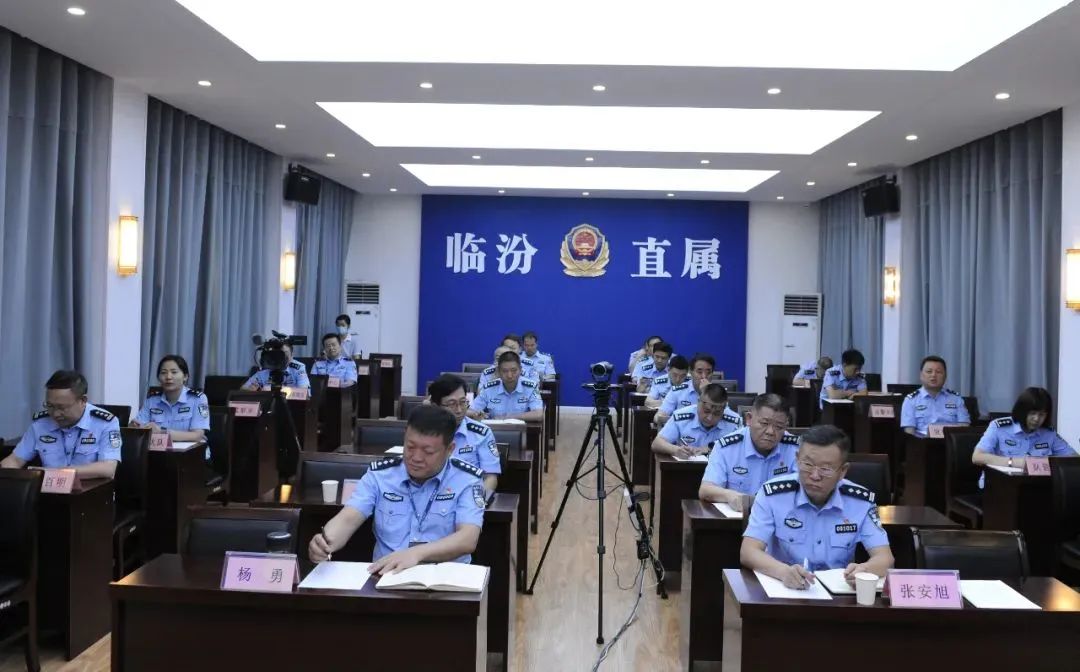AMS New Perspective ③ | Professor Cheng Jianjian: Increase the intensity of antibacterial drugs into performance assessment, strengthen the reasonable application of antibacterial drugs, and start from each doctor itself!
Author:Medical newspaper Time:2022.09.23

Physician News (Rong Media Reporter Huang Lingling) "Multiple -resistant bacterial infections are a problem that makes all doctors feel a headache." Professor Cheng Jianjian, head of the Medical Department of Henan Provincial People's Hospital, and Professor Cheng Jianjian, the Department of Breathing and Critical Medicine, said anxiously.
It is reported that among the 13 common clinical pathogenic bacteria resistance of bacterial resistance monitoring data reports, Henan Province in 2019 and 2020 in 2019 and 2020 Balman -resistant Bobnibacteria Three -generation cephalosporin -resistant pneumonia, Craberg, and E. coli, the 4 resistance rates of the 4 resistance rates are the first in the country, and the situation of resistance to resistance can be described as very severe.

The reasonable level of improvement of grassroots antibacterial drugs is imminent
In the opinion of Professor Cheng Jianjian, how to effectively prevent and control the generation of bacterial resistance, and strengthen the reasonable application of antibacterial drugs is a question that must be considered as a respiratory and criticalized doctors. In addition to the identity of the respiratory doctor, Cheng Jianjian is also the chairman of the reasonable application management branch of the Henan Provincial Hospital Association. As the first professional management organization for antibacterial drugs for medical institutions in China, it has established a platform for cooperative exchanges for medical, clinical, pharmacy, hospital, and inspection, and provides an effective carrier for the rational application management of antibacterial drugs.
In the three years since the establishment of the branch, it has carried out continuing education, professional training in the field of rational medication and infection in the field of hospitals, improved the business level of anti -infective related professionals, cooperated with the health administrative department to complete the management of rational use of medical institutions, reducing bacterial resistance issues, etc. Work helps the rational application level of antibacterial drugs in Henan Province.培训的目的是“希望与抗菌药物使用相关的每一个岗位医务人员都能够充分了解抗菌药物,如此方能更合理、规范地使用抗菌药物,患者因此得到更合适的治疗方法。”程剑剑教授介绍, Anti -infectious professionals who have trained offline have currently reached 3,000 people and nearly 50,000 online training.
To all the doctors, in recent years, the entire Henan Province has attached great importance to the reasonable application management of antibacterial drugs, and carried out special action activities for curb bacteria to resist bacteria to strengthen hospital infection control. With the efforts of all parties, the detection rate of important drug resistance in Henan Province has shown a downward trend in recent years: Antoxyxylin Golden Bacillus was 42.1%in 2013, 32%in 2021, a decrease of 10.1%; 2021 in 2021; 2021 in 2021; 2021 The detection rate of carbonic picilline -resistant Balman -Dimoticobacterobacteria is 73.7%, a decrease of 2.4%from 2020. Although some results have been achieved, Henan Province's drug resistance rate is still high and cannot be ignored.
The high resistance to resistance is closely related to the lack of consciousness, level, and ability of the reasonable application of antibacterial drugs, especially doctors who will deal with antibacterial drugs frequently. In some grass -roots hospitals, many doctors can use large doses of high -grade antibacterial drugs. When many patients with high -level antibacterial drugs are used to transfer to the hospital, they are likely to have drug -resistant bacteria. "Big hospitals may be more standardized and reasonable in the use of antibacterial drugs, but they still use the same antibacterial drugs." In Professor Cheng Jianjian, this will inevitably bring more challenges to the treatment of patients. It is imminent to improve the rational use of grassroots antibacterial drugs.
Henan Provincial People's Hospital to curb 7 major experience in drug resistance
For the use of antibacterial drugs, many doctors may initially make judgments based on experienced treatment. Sometimes they adopt a "wide coverage" strategy, but in the face of infectious diseases, precise "target" is very important. Target bacteria. Therefore, Professor Cheng Jianjian emphasized that in response to such diseases, it is necessary to transition from empirical therapy to target treatment as soon as possible, improve doctors' awareness of microorganisms, popularize microbial testing methods, improve microbial detection levels, strengthen multidisciplinary (MDT) cooperation, choose to choose A more reasonable antibacterial drug treatment plan reduces the unreasonable use of antibacterial drugs. "The clinician must first have a regular consciousness to abide by the management requirements of the state's antibacterial drugs. Second, in -depth understanding of antibacterial drugs, through certain assessment and training, obtain the prescription of antibacterial drugs. Good microbiology test records have a certain study and judgment of the response to the application of antibacterial drugs, so that the treatment plan can be investigated, so as to improve the reasonable level of antibacterial drugs. "In the reasonable application of antibacterial drugs, Henan Provincial People's Hospital has implemented a series of series Measures: (1) Organize clinical anti -infection, microorganisms, pharmacy, and hospital expert groups to the key departments; (2) Daily reviews of new antibacterial drugs operating medical records and timely feedback improvement; Reasonable application of drugs; (4) Creed in the case of infection with infection (live broadcast). As a result, the unreasonable use rate of antibacterial drugs in the hospital shows a downward trend, and the intensity of antibacterial drugs gradually decreases each year. In 2018, the intensity of antibacterial drugs in the hospital was 47.72, and the DDDS in 2020 has dropped to 39.77.
Since then, the Henan Provincial People's Hospital has summarized its own set of experience in the reasonable use of antibacterial drugs: (1) Incorporating the use of antibacterial drugs into the performance assessment of various departments, and continuously carried out the performance assessment of the intensity Asian specialist performance of antibacterial drugs. For example, the intensity indicators of antibacterial drugs are allocated for respiratory and criticalized medical department, intensive care unit (ICU), and infection department. Once the indicators are surpassed, punitive measures are taken. (2) Improve the examination rate of pathogenic microorganisms, transfer to precise treatment early, and reduce the time of experience for experience; (3) Regularly carry out a rational application training conference on antibacterial drugs to improve the level of anti -infection treatment; (4) Carry out targeted training; (5) monitor the use of special -grade antibacterial drugs and abnormal growth drugs; (6) In the environment of antibacterial drugs, reasonably adjust the directory to promote reasonable medication. (7) Strengthen the propaganda and notification of the rational use of antibacterial drugs.
Professor Cheng Jianjian specifically pointed out that respiratory and critical condition, critical condition, intensive care room (ICU), and infection department are "big households" for hospitals using antibacterial drugs. In addition to daily diagnosis and treatment methods Determine the pathogen, precise treatment in the early stage, and reduce the unreasonable use of antibacterial drugs; it is necessary to further strengthen the rational use of antibacterial drugs in non -related departments; increase more microbial detection "weapons", such as the macminine group technology, so that clinical clinical clinical Doctors obtain the results of pathogenics faster and more accurately, grasp the adaptation certificate of antibacterial drugs; increase the examination rate of microorganisms and shorten microbial test reporting time. These are also important methods to promote the reasonable and standardized use of antibacterial drugs.
Strengthening the application of carbonic mold antibacterial drugs
In addition, it is worth mentioning that the unreasonable use of carbon moldy antibacterial drugs is one of the important reasons for bacteria to resist it. Carbon moldyne antibacterial drugs have a wide antibacterial spectrum and strong antibacterial activity. They have antibacterial effects on oxygen demand and anaerobic bacteria, especially for multi -drug -resistant Gram -resistant fungus tools. The clinical application of this type of drug is widely used in antibacterial treatment such as multiple drug -resistant bacteria infections, hypoxia and anaerobic bacteria infections, severe infections and immune defects infection.
However, in recent years, the clinical use and intensity of carbonic antibacterial drugs have been increasing year by year. There are three main reasons. First, the number of multiple patients with drug -resistant bacteria infection increases. In recent years, clinical separation of bacterial antibacterial drugs has been rising globally globally, so the chances of choosing this type of drugs have increased. Second, the number of patients with immune defects and immunosuppressive treatment. Third, some medical staff clinical applications are unreasonable.
Professor Cheng Jianjian believes that strengthening the control of carbonicohene antibacterial drugs is an important part of curbing drug resistance. "You can't use a cannon to fight mosquitoes. The cannon must be aimed at big." He introduced that the Henan Provincial People's Hospital has sufficient experience in the management of carbonic moldy antibacterial drugs. Payment management, carbon moldyne antibacterial drugs are required to perform pathogenic microorganisms and deputy chief physicians infected with infectious professional deputy chief physicians before consulting; patients with carbon moldy drugs every month need to be discussed and summarized every month; 3 days in a row; Carbon molded antibacterial drugs need to further evaluate the patient's condition; daily tissue infectious physicians conduct random checks on the medical records of carbon moldyne drugs, and timely feedback the existing unreasonable situations to the supervisory physician in a timely manner. Through these measures, the excessive use of antibacterial antibacterial drugs for carbon moldynesmium is further used to slow the increase in drug resistance of carbonicohene antibacterial drugs. "Carbon mold antibacterial drugs are not unavailable, but must be used standardized and reasonable."
- END -
Latest release!Taiyuan Epidemic Prevention Office September 16 Health Tips

At 0-24 o'clock on September 15, 31 provinces (autonomous regions, municipalities)...
"Psychological Health" Linfen Public Security Bureau Direct Branch of the Public Security Bureau held a lecture on psychological health counseling

In order to strengthen care measures, pay attention to the physical and mental con...